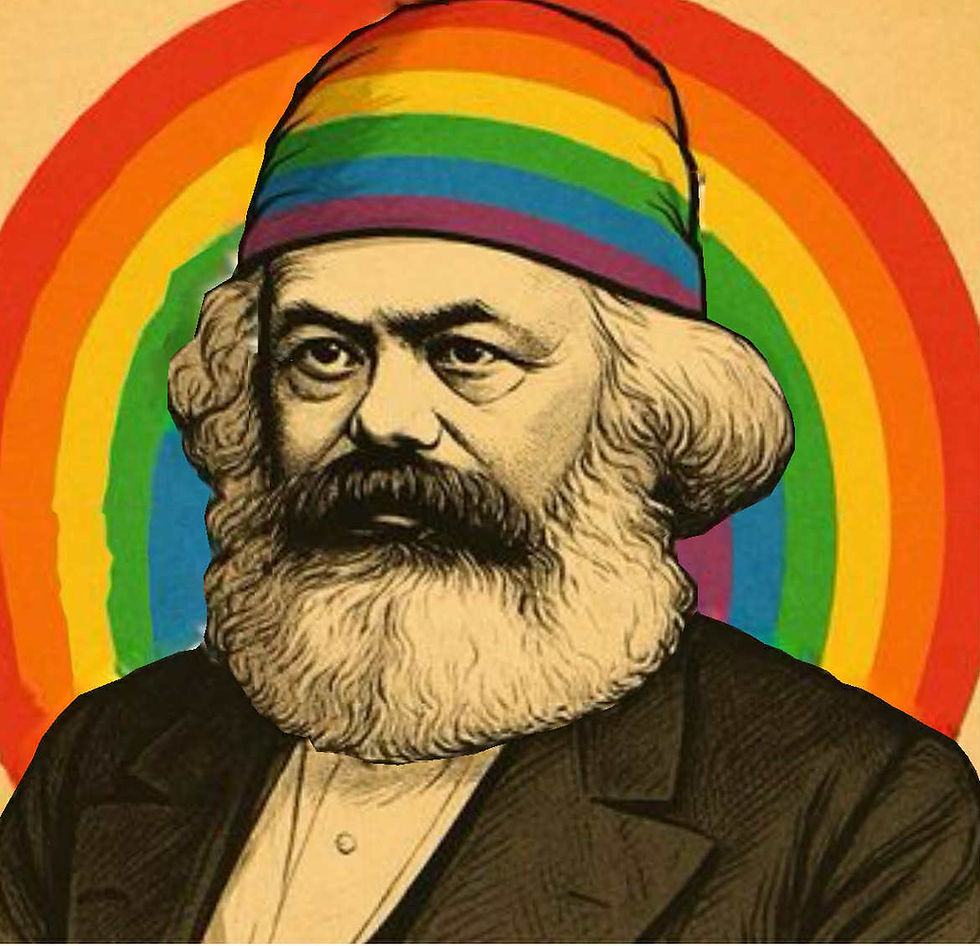Nuanced View of Idealism
- Mike Burnette
- Dec 21, 2024
- 4 min read
J.P. Moreland, a prominent Christian philosopher and theologian, holds a nuanced view of idealism, particularly in relation to the nature of the soul, consciousness, and reality. His perspective integrates elements of substance dualism and theistic idealism, while maintaining a strong commitment to a Christian worldview.
J.P. Moreland’s Views on Idealism and the Soul:
1. Substance Dualism Over Pure Idealism:
• Moreland primarily identifies as a substance dualist rather than a pure idealist. He believes the soul and body are distinct substances, with the soul being an immaterial, substantial reality capable of existing independently of the body.
• While idealism often suggests that everything is fundamentally mental or spiritual, Moreland argues that both material and immaterial substances exist, but the soul (or mind) is irreducible to physical processes.
2. The Soul as a Substantial Entity:
• For Moreland, the soul is not merely a collection of mental states but a substantial, immaterial self that possesses consciousness, rationality, and moral awareness.
• He holds that the soul is the center of personal identity and continues to exist after physical death.
3. Critique of Materialism:
• Moreland strongly opposes physicalism (the belief that everything, including consciousness, can be reduced to physical processes).
• He uses arguments from introspection, qualia (subjective experiences), and intentionality (the aboutness of thoughts) to show that consciousness cannot be fully explained by physical phenomena.
4. Alignment with Theistic Idealism:
• While not strictly an idealist, Moreland shares similarities with theistic idealism, where God is understood as the ultimate mind sustaining reality.
• He agrees with the view that God, as the ultimate immaterial being, upholds the existence of both material and immaterial substances.
5. Soul and Divine Interaction:
• Moreland sees the soul as uniquely equipped to relate to God, possessing faculties like rationality, moral awareness, and free will.
• He views the soul as capable of perceiving transcendent realities, including moral truths and divine presence.
6. The Soul in Epistemology:
• Moreland argues that the soul, as an immaterial entity, is essential for understanding how humans have access to knowledge, particularly a priori truths (e.g., mathematical or moral truths).
• He often critiques reductionist accounts of knowledge that attempt to eliminate the immaterial soul from the equation.
7. Influence of Idealist Thinkers:
• Moreland draws on thinkers like Plato, Descartes, and Berkeley, but he does not fully adopt their metaphysical frameworks.
• He appreciates their emphasis on immaterial realities but maintains a distinction between God as the ultimate sustaining mind and the created immaterial soul.
Key Differences Between Moreland and Idealism:
• Realism about the External World: While many idealists claim that physical reality is fundamentally a product of perception, Moreland holds that the physical world exists objectively and independently of human perception, upheld by God.
• Distinct Soul and God: Unlike some forms of idealism that blur the distinction between human minds and the divine mind, Moreland insists on a clear ontological distinction between God (uncreated) and the human soul (created).
Summary of J.P. Moreland’s Position:
• Metaphysical Framework: Substance Dualism with Theistic Foundations
• View on the Soul: The soul is an immaterial, substantial self capable of existing apart from the body.
• God and Reality: God is the ultimate immaterial reality who sustains all of existence.
• Material World: The physical world exists independently of human perception but depends on God for its ongoing existence.
In essence, J.P. Moreland integrates insights from idealism into his substance dualist framework while avoiding the pitfalls of radical idealism that deny the objective existence of the material world. His philosophy provides a robust defense of the soul’s immaterial nature, its role in knowledge, and its relationship to God.

***************
Idealism, in reference to the soul, is a philosophical viewpoint that emphasizes the primacy of immaterial, non-physical reality, often positioning the soul or mind as the fundamental essence of existence. It suggests that reality, including the physical world, is ultimately shaped, dependent upon, or even created by the mind or soul.
Core Ideas of Idealism Regarding the Soul:
1. Primacy of the Mind or Soul:
• Idealism asserts that the mind or soul is more fundamental than matter. Physical reality is seen as either secondary or even an illusion derived from the soul’s or mind’s perception.
2. The Soul as Immortal and Immaterial:
• Many idealist thinkers argue that the soul is eternal, indestructible, and exists independently of the body.
3. Reality as a Mental or Spiritual Construct:
• Physical reality is often viewed as a manifestation of a greater spiritual or mental reality, with the soul playing a central role in perceiving or even shaping this reality.
4. Connection to Higher Truth or Ultimate Reality:
• The soul is often seen as having a connection to a higher metaphysical reality, whether it’s God (as in Christian idealism), the Absolute (as in Hegelian philosophy), or some universal consciousness.
5. Knowledge and the Soul:
• In idealism, true knowledge comes not from empirical observation but through introspection, reason, and the alignment of the soul with higher truths.
Key Idealist Thinkers on the Soul:
• Plato: Argued that the soul pre-exists the body and has access to eternal Forms or Ideas. The soul is the true self, and the body is merely a temporary vessel.
• Immanuel Kant: Distinguished between the phenomenal world (what we perceive) and the noumenal world (the thing-in-itself). The soul belongs to the noumenal realm, which transcends physical perception.
• George Berkeley: Proposed that material objects do not exist independently but are ideas perceived by a mind (or the soul). “Esse est percipi” — to be is to be perceived.
• Georg Wilhelm Friedrich Hegel: Saw reality as an unfolding of the Absolute Spirit, with the individual soul being a finite expression of this larger spiritual reality.
Theological Idealism:
In a Christian context, idealism often aligns with the view that the soul is created by God, exists eternally, and will persist beyond physical death. The physical world is seen as a reflection of a higher divine order, and the soul’s purpose is to align with this order through moral and spiritual growth.
In summary, idealism sees the soul as the essential, enduring core of human existence and often considers it the primary interface with ultimate reality or divine truth.



Comments